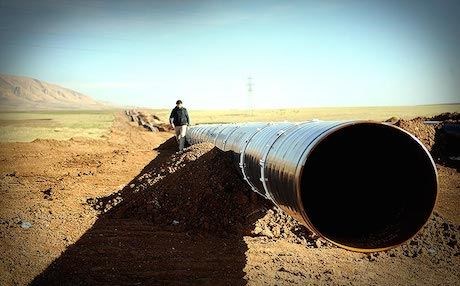Kurdistan prepared to send oil – if Baghdad meets obligations: KRG source

Baghdad can expect to receive 250,000 barrels of oil per day from the Kurdistan Regional Government (KRG) if it meets its own commitments to pay the Region’s civil servants, repays debts to oil firms, and supplies an adequate budget, a KRG source told Rudaw.
Prime Minister Nechirvan Barzani and Deputy Prime Minister Qubad Talabani are taking part in a meeting of the KRG’s oil and gas committee to discuss the budget, oil, and economic relations between Erbil and Baghdad, the source said.
“The Kurdistan Region is prepared on condition to send 250,000 oil barrels to Baghdad daily
,” the source told Rudaw, provided “Baghdad too is prepared to send salaries of Kurdistan Region employees, is committed to paying off the debts owed to oil companies, and dedicate functional budget.”
KRG Finance Minister Rebaz Hamlan will present a report about the Region’s expenses and revenues, and Minister of Natural Resources Ashti Hawrami will present a report on its oil revenues, Rudaw has learned.
The meeting will also cover the agreement between the Kurdistan Region and Baghdad on the budget, civil servant salaries, and Kurdistan Region oil exports.
Independent oil exports by the KRG have always been a sticking point in relations between the central and regional governments. Tensions boiled over in 2014 when the Iraqi government cut the region’s budget share.
The KRG has argued it can sell its oil according to the Iraqi constitution, while Iraq argues oil sales are a strictly federal matter. The vague, inconclusive nature of the issue stems from the document’s writ.
Article 111 of the constitution stipulates that oil and gas are owned by Iraqis “in all the regions and governorates”. Article 112’s first and second sections provide vague detail.
In the first section, the federal government “shall undertake the management of oil and gas extracted from present fields” with the producing governorates and regional governments, and for the revenues to be distributed proportional to population in a “fair manner.”
The second section of the document agreed upon in 2005 stipulates that the federal government, with the producing regional or governorate governments, “shall together formulate the necessary strategic policies to develop the oil and gas wealth”. The two articles are vague and both governments have interpreted it differently.
This has led to crippling financial crises, coupled with a drop in oil prices, and the onset of the costly war against ISIS. The KRG had to slash the salaries of its public employees.
However, after the events of October 2017, Iraq agreed to send 317 billion Iraqi dinars ($266 million) to supplement the loss of the Region’s oil revenues to pay public servants.
Under the administration of current Iraqi Prime Minister Adil Abdul-Mahdi, relations have improved. The 2019 budget is soon to be implemented.
The new budget bill has a protection for civil servants in the Kurdistan Region. No longer will their salaries be cut if the KRG does not hand over the oil. Rather, Baghdad could cut other non-salary related budgets for the KRG.